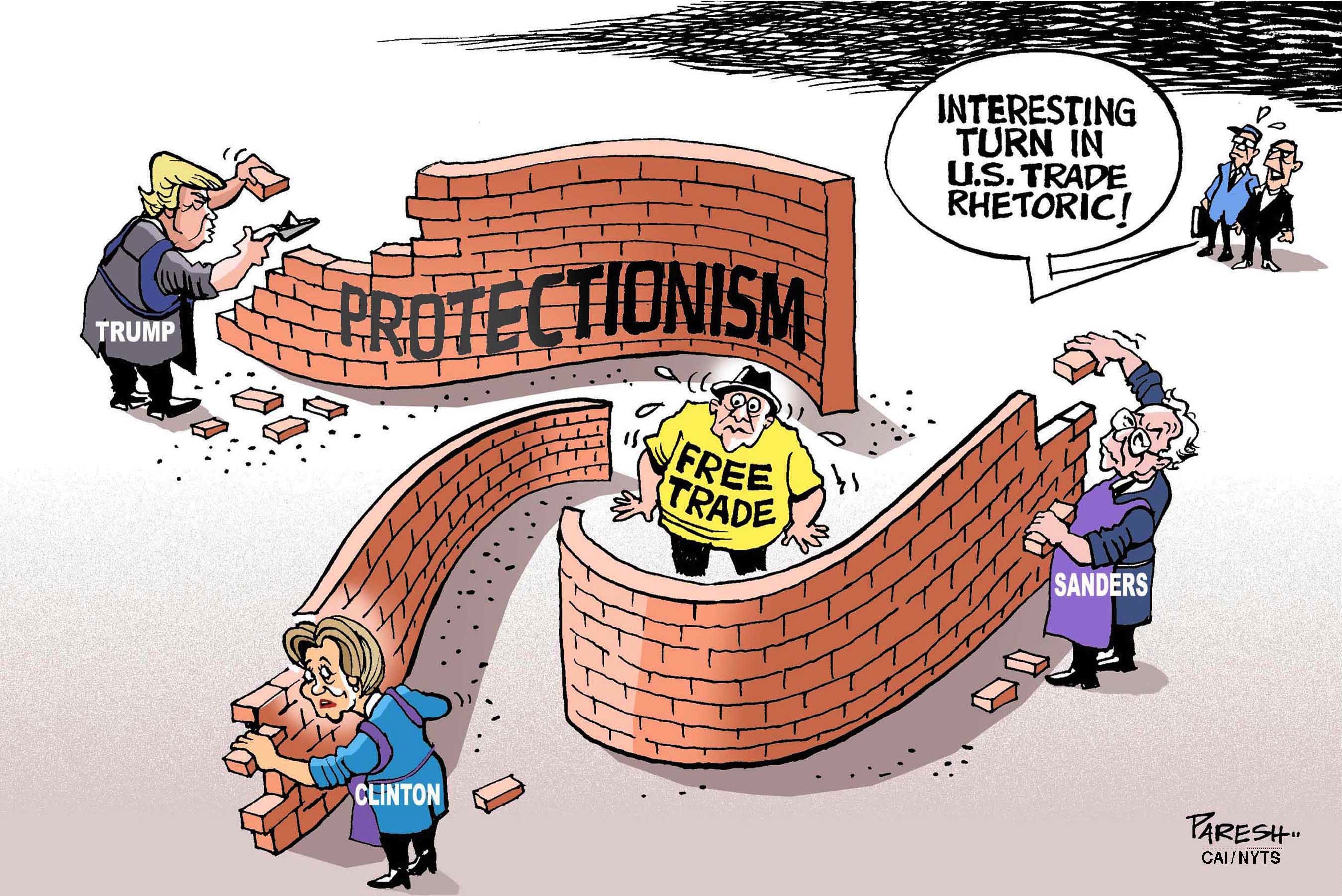The Trans-Pacific Partnership, a multilateral trade deal involving the United States and many countries on the Pacific Rim, has become something of a bugaboo for those both on the left and the right. Republican nominee Donald Trump has denounced TPP, declaring it a sop to China, even though China isn't included in the agreement. Bernie Sanders is against it as well. President Barack Obama and Democratic vice presidential nominee Tim Kaine are for it, while Hillary Clinton, who helped negotiate the deal, has now turned against it.
It's not clear what Americans in general actually think about the treaty — polls indicate lukewarm support, and Americans tend to view foreign trade as an opportunity rather than a threat. But it's obvious that there are very vocal, committed minorities in both parties who are adamantly opposed to the deal, and both nominees appear to be giving them what they want.
That's odd, because the TPP is pretty innocuous and incremental stuff. Since trade barriers in the countries that are parties to the treaty aren't that high to begin with, there are only small gains to be made from dropping them. By the same token, it also means that few American jobs are in danger of being lost. Most importantly, the main TPP countries are all rich, developed nations, which means that the deal has essentially no chance of producing the kind of industrial hollowing-out in rich nations that happened after China joined the World Trade Organization in 2001.


















With your current subscription plan you can comment on stories. However, before writing your first comment, please create a display name in the Profile section of your subscriber account page.